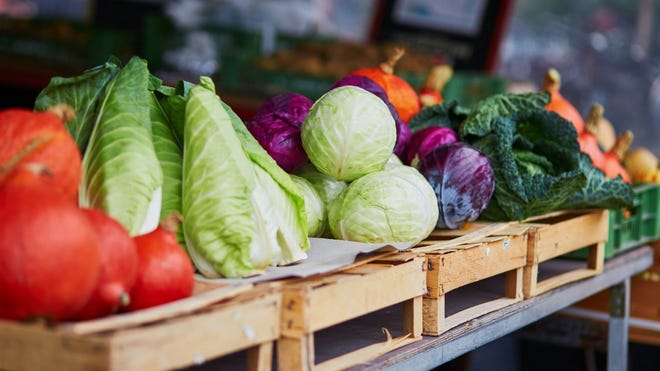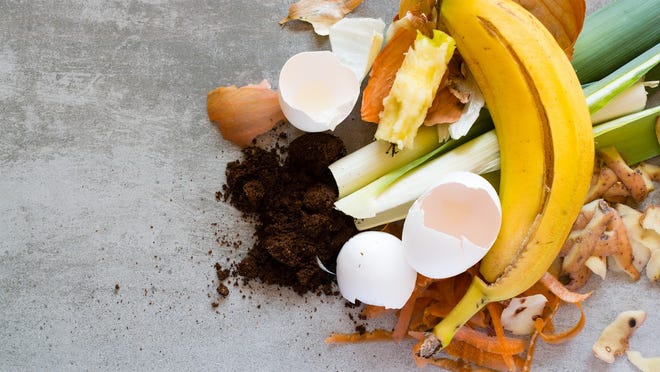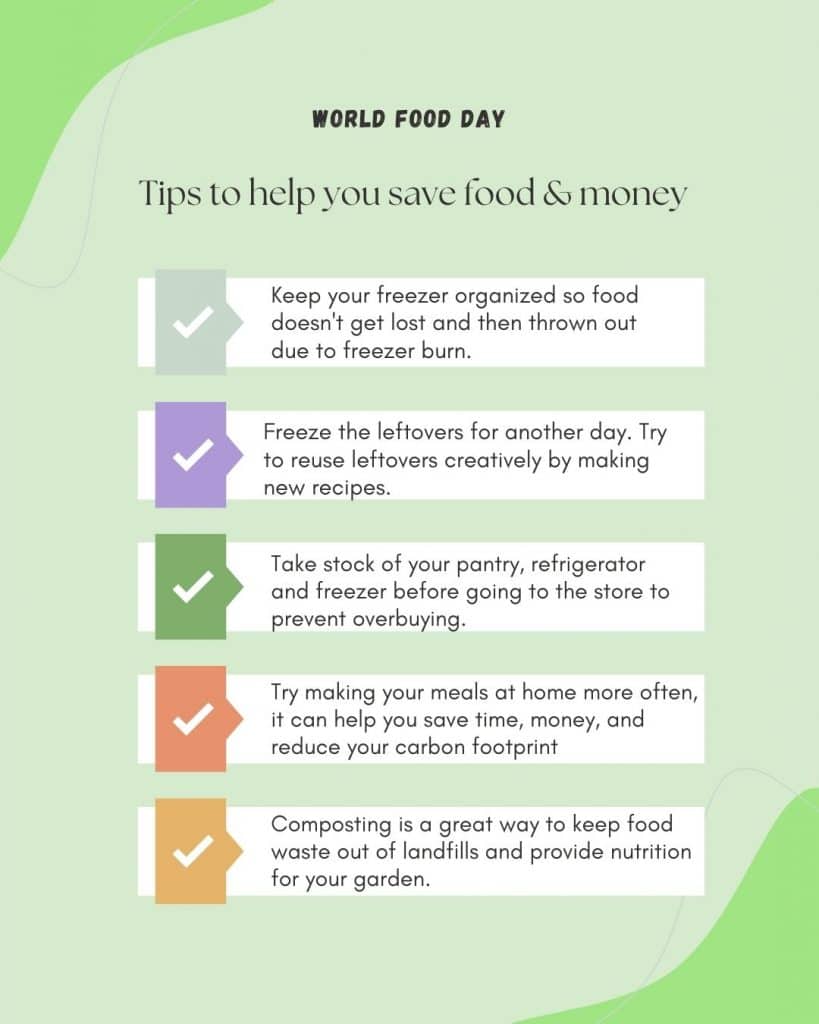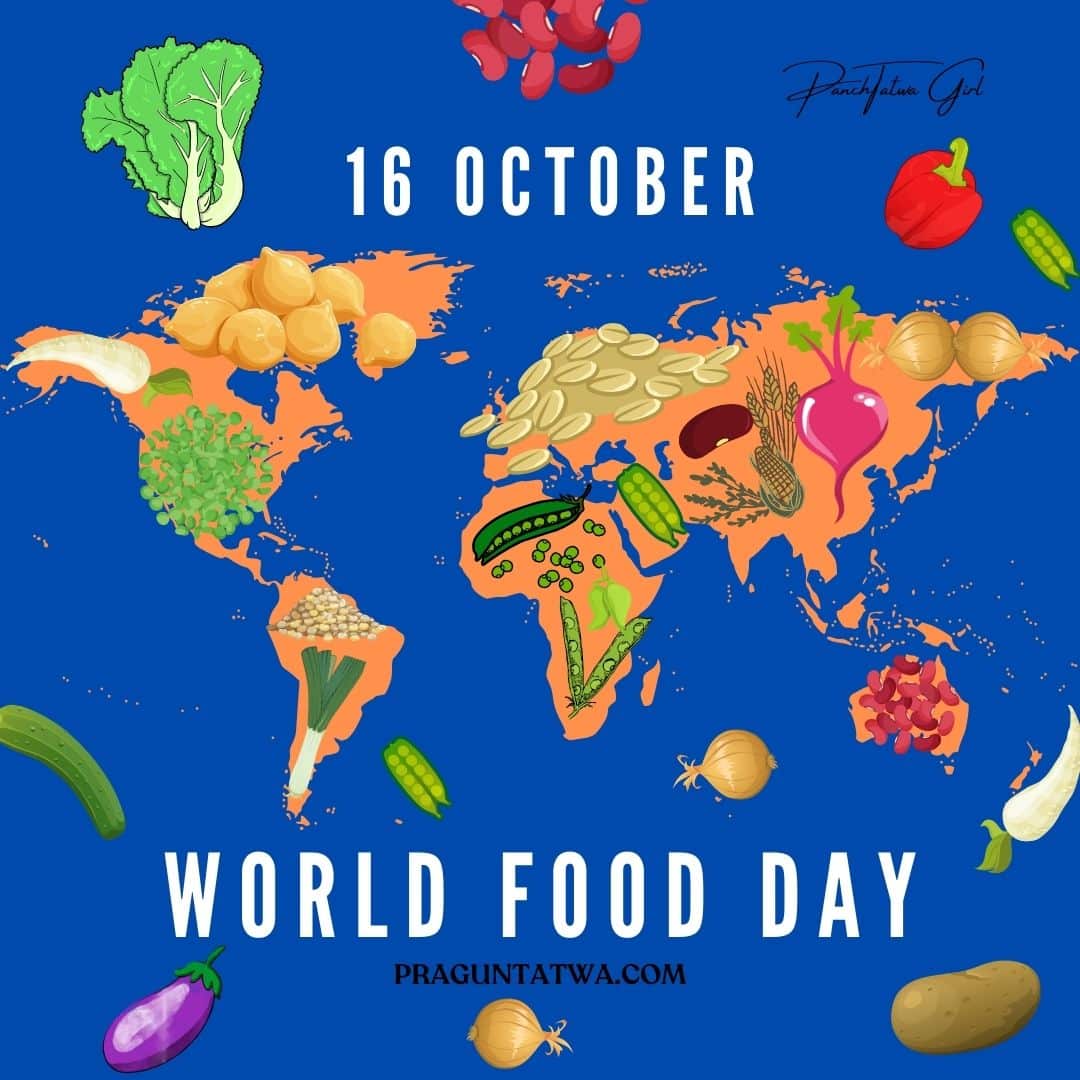Food, is the basic necessity of life, the substance we consume to provide nutritional support to our body, and which helps in growth and other functions of our body. Our food provides us with the much-needed nutrition and energy that we need to grow, focus, and function in different activities. Eating food is not only satisfying for the human body but it is also giving pleasure to our senses of flavors, textures, aromas, colors, personal content, and satisfaction. When you taste your food or drink you appreciate it, and you are being grateful. Giving thanks for the simple things in life, such as food and water, is one of the deepest ways to express gratitude. On World Food Day – 16 October, let’s be mindful and reduce food waste.
In the past few years, people have become more aware of their role in the environment and how their actions can impact it. One of the most important ways we can do this is by taking care of ourselves and our food supply. The World Health Organization has recognized that a better diet would lead to a healthier world. If everyone had access to healthy food, it could help prevent non-communicable diseases, such as type 2 diabetes, cancer, and cardiovascular disease. This is why eating better and reducing waste are so important.
Many people are starting to realize the negative impacts of what we eat on our planet and how wasteful our food consumption is. More and more people are looking for ways to reduce their waste and make sustainable choices. One way to do this is by cooking from scratch and making food from raw ingredients, rather than using processed or ready-prepared food.
Let’s explore some tips for reducing your waste when you cook from scratch, as well as some reasons why you might want to take this approach in the first place.
Tips to Watch Your Food and Reduce Food Waste
Choose local and organic
Some people are concerned about the environmental and health implications of what they eat. This is because we don’t always know where our food comes from or what types of pesticides or chemicals it may have been exposed to. To help protect your health, the best option is to choose local and organic produce whenever possible. Growing organic food is labor intensive but requires 30%-50% less energy to produce.
Eating locally-grown food also saves energy because of the lower transportation costs. Eating all locally-grown food for one year could save the GHG equivalent of driving 1,000 miles, according to the Center of Sustainable Systems at the University of Michigan. 
Compost your food and yard waste
One thing you can do to help the environment is to compost your food waste. A lot of the waste that we create on a daily basis is from food, and it could be diverted by composting it instead.
Composting at home is easy! With composting, you can take your scraps from your kitchen and put them in a small container outside on your porch or balcony. Then, when you have enough things to make about one foot of compost material, you can add this to a larger container with dirt and water to create rich soil that will feed the earthworms. This means that when you are done eating fruit or vegetables, you don’t throw them away or give them to the animals; instead, they go back into the ground as a nutrient for other plants. And if everyone did this in their own home then there would be less need for run-off disposal sites because of all the food scraps that people dispose of every day.
Nearly 30% of the waste stream consists of food and yard waste, according to the EPA. Over 50 million tons go to a landfill or incinerator. Composting not only saves disposal costs — and reduces the methane emitted from landfills — but it also creates a valuable soil amendment, reducing the need for manufactured fertilizers. You don’t need to have a lot of land or technology to compost your household food and yard waste. Your composting area can be a hole where you regularly till the compost, a composter product, or even a worm bin in your apartment.

Shop at your local farmer’s market
One way to reduce food waste is by shopping at our local farmer’s markets. Farmers markets are great places to buy fresh produce because these items are grown locally and are less likely to sit for long periods of time before being eaten. When you shop at the store, you might be buying food that has been sitting in a warehouse for weeks. That food could have gone bad and is no longer safe to eat. But when you buy from a farmer’s market, you’re getting foods that haven’t been sitting on shelves for weeks and you’re supporting small businesses who sell food grown locally.
So, next time you’re grocery shopping, consider going to your local farmers market to buy some fresh fruits or vegetables! Shopping local also supports community growers and small business economies. But make sure you bring a reusable bag! Eat as locally as possible.
Stop throwing out food
The average person throws out about 25% of the food they buy. This is really bad for our environment and costs us a lot of money. Not only do we waste food, but the water used to produce this waste food is not being recycled back into the earth. We need to be mindful and thoughtful to reduce food waste.

According to a 2012 study by The Natural Resource Defense Council, American families throw out approximately 25% of the food and beverages they buy, costing the average family of four between $1,365 and $2,275 every year — even more in today’s dollars. There are also energy, production costs, and resources involved in the production and transport of this thrown food. You can save these by matching your food purchases to your actual consumption through menu planning and grocery lists.
You will reduce your carbon footprint if you limit the amount of meat and dairy you consume. Animal-derived food production has a much higher greenhouse gas output than grain and vegetable production because of the highly inefficient transfer of plant energy to animal energy. Depending on how it’s measured, animal-based agriculture is responsible for about 15% of all worldwide GHG emissions, according to the Food and Agriculture Organization of the United Nations.
Grow your own herbs
Growing your own food is one of the biggest ways to become more sustainable. Novices to the world of food-growing can begin with garden herbs. These lovely food accents not only add a welcome burst of flavor to any meal but fill your home with an array of lush, earthy scents. The five easiest herbs to start with (depending on your climate) are basil, oregano, thyme, mint, and parsley. These can be grown in pots with six hours of bright sunlight, and only need watered a few times a week. For more info on growing herbs in your home, check out this blog by Cooking Light.
Green Up your diet
The food you eat every day has a huge impact on the planet. Opting for organic, supporting local farmers, and phasing out or at least lowering your consumption of meat will absolutely make a difference. It is also important to reduce food waste: try meal planning to streamline your shopping — and compost whatever you don’t use. Consider a more plant-based diet: “I don’t think everyone has to go vegan to make a huge change. The more realistic thing is for the majority of people to cut down meat consumption to a couple of days a week.”
Zero waste your food shopping
As the name implies, zero-waste sends nothing unnecessary or deemed recyclable, to landfills. A refrain of the zero-waste philosophy is reuse, reuse, reuse! Bulk stores or bulk sections are boons for those looking to shop zero waste. Bring your own bag or container to the grocery store, and before stocking up on dry goods, ask for the “tare,” to see how much your container weighs when empty. Also, opt for purchasing tin cans or paper-wrapped items rather than items with plastic packaging.
Eat as seasonally as possible
Asking for watermelons and mangoes in winter in India is just a utilization of resources for high-temperature deep freezers. Off-season fruits and vegetables need storage and energy to preserve them. If you’re eating tomatoes from the UK that aren’t in season, then you know they’ve been grown in some huge greenhouse that uses a massive amount of resources to basically fake the weather. So you’re using a massive amount of heat energy to grow the tomatoes out of season.
Think about packaging
Buy in bulk and carry your containers or bags. There are zero-waste shops where you buy unpackaged food. But you can also go to the supermarket, and make better choices by buying unpackaged fruit and vegetables or opting for cans and cardboard that are widely recycled instead of plastic. So there are better choices that you can make in regular shops to reduce food waste.

Check out my ‘Don’t waste your food’ poem here.
Sustainability With Prachi
To sum up, This is my conscious lifestyle post to spread more awareness about sustainable living and eco-friendly choices. Join me for more such ways and tips and become part of my Conscious and sustainable living journey. Be aware of eco-friendly and conscious lifestyles, and alter your lifestyle. Keep visiting my blog to make sustainable choices.
To add on, read and join the Sustainability with Prachi series and listen to interviews with Eco-conscious people who are trying their bit towards conscious and sustainable living practices only on Green Tatwa Talks. There is so much to learn and explore from all of them I have interacted with, Do listen and drop in your views in the comments. Check here to learn more about all the Eco-Friendly dates.
Being Eco-Friendly is not a choice, make it a habit.
Without a doubt, sustainability is easier than you think. You don’t have to jump in by changing everything. Start small to make the changes more eco-friendly, sustainable and a part of your daily life.

Leave a Reply